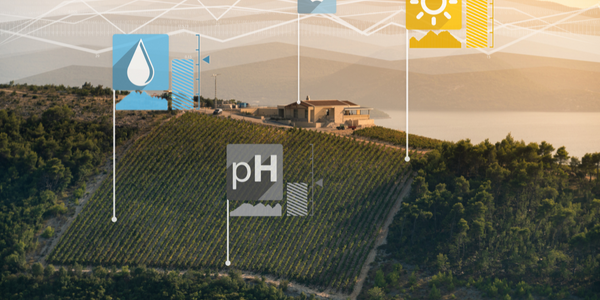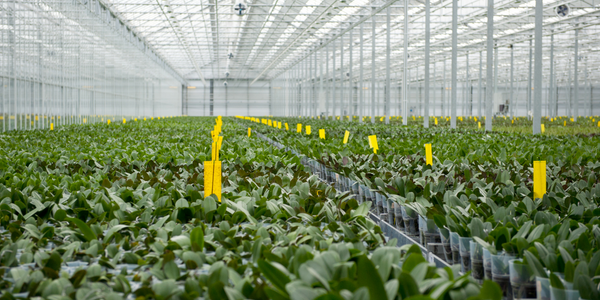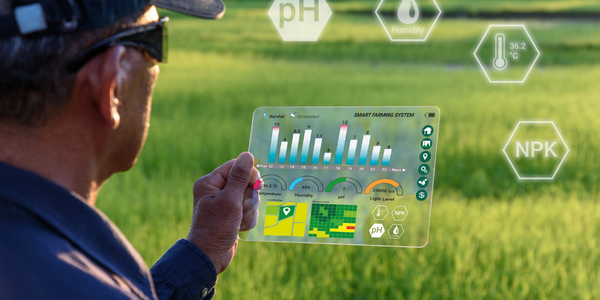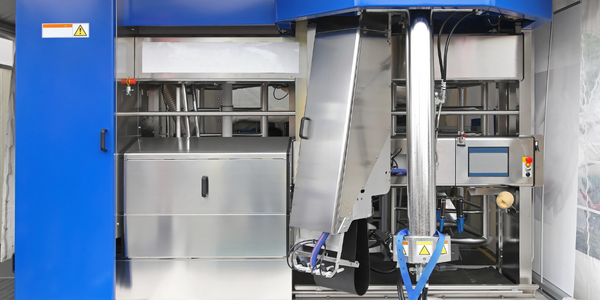Customer Company Size
SME
Region
- America
Country
- United States
Product
- DocuWare
Tech Stack
- DocuWare
- Peachtree
Implementation Scale
- Enterprise-wide Deployment
Impact Metrics
- Productivity Improvements
- Digital Expertise
Technology Category
- Functional Applications - Enterprise Resource Planning Systems (ERP)
Applicable Industries
- Agriculture
Applicable Functions
- Business Operation
Services
- System Integration
About The Customer
National Crop Insurance Services is an international non-profit organization representing the 18 crop insurance companies that sell Federal crop insurance, as well as others that write private crop-hail insurance only. NCIS members write crop-hail insurance, the federally-supported risk management program, and privately developed crop insurance products, totaling more than $11 billion in premiums, with an insured value of nearly $150 billion in 2014. On behalf of its members, NCIS collects and manages data and information, conducts research and analysis, serves as a licensed statistical agency for the crop-hail program, and conducts extensive educational activities on claims adjustment, ethics, policies, and procedures. NCIS members range in size from one-state companies to national writers, as well as international company members. The companies service all farmers participating in the federal program, including limited-resource and socially disadvantaged farmers. In partnership with the government, these private companies deliver the safety net that equitably provides effective risk management tools to America’s farmers and ranchers.
The Challenge
National Crop Insurance Services (NCIS) is an international non-profit organization representing 18 crop insurance companies. They manage data and information, conduct research and analysis, and conduct educational activities on claims adjustment, ethics, policies, and procedures. With a staff of 45, NCIS needed a secure single location where it could store and manage their corporate documents such as internal meeting minutes, information from the federal government, and bulletins it distributes to its members. They also needed a better way to track the different versions of notes as they worked towards making a decision and they needed to be able to easily research when and why a decision was made. The organization also needed to update its document retention policy regarding email in order to free up room on its servers. In general, they saw the benefit of making their processes as paperless as possible.
The Solution
NCIS spoke with their trusted IT vendor about their needs, who recommended and installed DocuWare. The software was initially rolled out to the HR department and all employees were trained on how to use the software to manage time cards, time sheets, and time off requests. This was done to help the entire organization feel comfortable with DocuWare before it was rolled out to other areas with more complex work processes. Next, DocuWare was rolled out to manage meeting minutes with long term retention schedules. Today, meeting minutes are stored in DocuWare making them available from a laptop, phone, or tablet, eliminating emailing out the notes. Version control is used to help the staff keep track of high priority decisions and to document the evolution of policy decisions. NCIS decided to back scan Board of Director minutes to 1997. In the past, five to six times a year NCIS would mail a CD to its members containing a federal report for every county and crop in the nation. Today, member agents can login to DocuWare through NCIS’ website and download or access the information that is pertinent to them for their clients. Agents use this information to determine the premium and coverage amount for crops, so knowing that they are always looking at the most current information is critical.
Operational Impact
Quantitative Benefit

Case Study missing?
Start adding your own!
Register with your work email and create a new case study profile for your business.
Related Case Studies.

Case Study
Intelligent Farming with ThingWorx Analytics
Z Farms was facing three challenges: costly irrigation systems with water as a limited resource, narrow optimal ranges of soil moisture for growth with difficult maintenance and farm operators could not simply turn on irrigation systems like a faucet.

Case Study
Greenhouse Intelligent Monitoring and Control Solution
Farming Orchids is the most successful form of precision farming in Taiwan, and also the most exported flower. Orchids need a specific temperature and humidity conditions to grow and bloom, and its flowering time may not be in line with market demands, so the price collapses when there is overproduction. Therefore, some farmers began to import automated greenhouse control systems for breeding and forcing, which not only improves quality, but also effectively controls the production period and yield to ensure revenue. In 2012, an orchid farmer built a Forcing Greenhouse of about 200 pings (approximately 661 Square Meters) in Tainan, Taiwan. The system integrator adopted Advantech’s APAX-5000 series programmable automation controllers to build the control platform, coupled with Advantech WebAccess HMI/SCADA software, to achieve cloud monitoring. The staff of the orchid field can monitor important data anytime via smart phone, iPad, and other handheld devices, and control the growth and flowering conditions. System requirements: In the past, most environmental control systems of orchid greenhouses in Taiwan used PLCs (Programmable Logic Controller) with poorscalability and control, and could not be connected to the Internet formonitoring from the cloud. For advanced database analysis and networking capability, the PC platform must be adopted. Therefore, PAC Systems (Programmable Automation Controller) with both PLC programming capabilities andPC functions is a better choice.The environmental control of the Orchid greenhouse switches on and off devices like fan, shade net, cooling/heat pump, liquid flow control, water-cooling wall etc. It is controlled by a control panel of electric controllers, and is driven by a motor, to adjust the greenhouse temperature, humidity, and other environmental conditions to the set parameters.

Case Study
Precision beekeeping with wireless temperature monitoring
Honeybees are insects of large economic value and provide a vital service to agriculture by pollinating a variety of crops. In addition, bees provide us with valuable products such as honey, beeswax, propolis, bee venom, etc. Monitoring of honeybee colony health, population, productivity, and environmental conditions affecting the colony health have always been exceedingly difficult tasks in apiculture. Research has shown that even small deviations (by more than 2°C) from the optimal temperatures have a significant influence on the development of the brood and the health of adult bees.

Case Study
Enabling Internet of Things Innovation in Agriculture
DigiBale, wanted to apply technology know-how and IP from implementations successfully to more agriculture sectors including cotton, forestry, sugarcane and cattle. However, farmers and growers still have worries about the connected technology.









